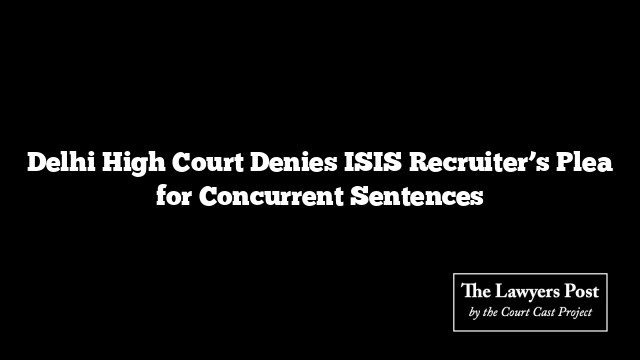The Delhi High Court has dismissed a plea by Mohsin Ibrahim Sayyed, a convicted ISIS member, to have his sentences from two separate cases run concurrently. Sayyed, who had been found guilty under the Unlawful Activities Prevention Act (UAPA) for recruiting individuals for ISIS and planning terrorist attacks during the Ardh Kumbh Mela, sought a reduction in his combined sentence duration.
Justice Swarana Kanta Sharma emphasized the severity of Sayyed’s actions, highlighting his guilty plea to charges involving terrorism, including a plot to attack Haridwar during the Kumbh Mela and an assassination attempt on a Hindu Mahasabha leader. The court noted that the concurrent running of sentences is generally discouraged in severe cases, as seen with the Narcotic Drugs and Psychotropic Substances Act (NDPS Act) due to their societal impact.
Justice Sharma stated that the trial courts had already shown leniency by not imposing life sentences, and further reduction by allowing concurrent sentences was unwarranted. She reiterated the necessity for stern handling of terror-related cases to maintain societal harmony and security.
Sayyed’s conviction details reveal that the Mumbai trial court sentenced him to eight years for promoting ISIS activities and recruiting youths as suicide bombers, along with plotting an assassination. The Delhi court handed him a seven-year sentence for conspiring to attack Haridwar during the Kumbh Mela and raising funds for the operation.
The court concluded that running the sentences consecutively was appropriate, ensuring that Sayyed serves a total of 15 years in prison. This decision underscores the judiciary’s commitment to addressing terrorism with utmost seriousness.





